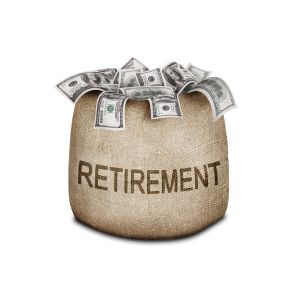6 Things You Should Consider Before Your Retirement: Live Comfortably After

If full-time work is nearly coming to a close for you, it’s important to really look at the financial aspects of your next life move – be it semi-retirement, retirement or something else altogether. After all, you don’t want the transition to throwing your curveballs. Thus, looking at the decisions you make under a fine tooth and comb is important to ensure you know what your bottom line will be.
Some individuals saved for years for their retirement, but others either didn’t or haven’t been able to, hoping they could make it through. Some people want to continue working until they die. No matter what your thoughts are, experts feel you need to make sure your financial base has been covered in the event something happens.
Healthcare Is Most Often Forgotten Expense
As people get older, they often go to the doctor more often. However, it’s an expense most people tend to forget. An average 65-year-old couple will pay about $280,000 in their lifetime for medical care.
Of course, once you turn 65, you are eligible for Medicare. If you retire at or after that age, Medicare is available to you. The coverage doesn’t cover dental, vision or long-term care though. This is something to keep in mind. How much you pay into
Medicare is dependent on a number of things:
-Income
-Late-enrollment fees
-Additional coverage (optional) and how much
If you retire before you are 65, you have to find your own healthcare coverage.
For people who have a gap in their coverage, they can take advantage of COBRA. According to federal law, employers with 20 workers or more can permit ex-employees (retirees qualify) to stay on their employer-sponsored health plan so long as the ex-employee can pay the entire premium cost. Most employers will cover current employees, not COBRA coverage.
You also have the option to enroll in the Affordable Care Act plan (also called Obamacare), and income dependent, you could get a subsidy to help pay for your plans. Some other choices include short-term plans – come with skimpy coverage but are good for otherwise healthy individuals who have no pre-existing conditions.
Realize What Your Social Security Plan Is
While you can begin taking out social security when you turn 62, the longer you delay, the more the check will be. The increase is anywhere from six to eight percent a year until you turn 70. The majority of people can’t wait and take that amount. If you’re that case and still work, you need to know how the income from your job will affect your social security benefits.
The Bureau of Labor Statistics found that over half of people (54.7 percent) ages 60 to 64 worked a part-time job in 2017. For those 65 and older, it was 31.2 percent. If you begin withdrawing from Social Security before the full retirement age, you are limited to how much money you are allowed to earn before your benefits become affected.
For 2019, the amount is $17,640. If you earn more than this, the amount is reduced by a $1 for every $2 earned. When you finally turn the full retirement age, you get the money back by getting an increase in your monthly check. When this happens, you can also work and earn as much as you want without your benefits being affected.
For 20189, if you take retirement early and get social security and then decide to work until you hit full retirement age, you get $1 deducted for every $3 earned above $46,920.
Look At Your Income and Tax Scenarios
Retirement income sources can vary from each person – retirement savings (401k), individual retirement account, taxable savings and investment accounts, business and trust income, health savings account, Social Security and pension. And, you don’t have to have just one retirement income source, which is why you need to be smart as to how you use it.
All retirement income sources are taxed differently, which is something you need to keep in mind. For withdrawals from a traditional 401(k) or IRA plan, you are taxed as if it were work income. However, withdrawals from Roth IRAs and Roth 401(k) plans, you are not taxed. If you own a taxable investment account, withdrawals may be subjected to capital gains taxes.
You’ll also need to take minimum distributions – the yearly amount that needs to be withdrawn – when you turn 70 1/2 from either your traditional 401(k) or IRA. There are no RMDs with Roth IRAs, but something Roth 401(k) plans to have them. You may find yourself in a higher tax bracket at the end of it all.
You can mitigate this by rolling the assets into a Roth IRA before this happens or use the funds before the RMDs start, so you’re not faced with paying more taxes. Bear in mind that your yearly income will also affect how much you pay for Medicare. If you make more, you’ll pay more for your coverage.
Look At The Risks Of Retirement Accounts
If you have either or both an IRA and 401(k) plan, you need to ensure the investment mix is ideal for your retirement plan. How much of your portfolio is focused on stocks, which can be risky but do offer the best returns, is going to depend on the amount of income you need for retirement and the risk you can feasibly handle.
If you’ve held onto a particular investment for many years, you may want to see if it’s still the right investment for you.
Give Yourself Some Leeway
According to financial advisors, you need to have several years’ worth of income that doesn’t include the stock market, cash, or other risky investments. Any money you need for the next two or three years should not be put at risk. Since the market can take a downturn before you know it, you need to have three years’ worth of income that won’t be hit by ups and downs.
Should the market drop, you don’t have to sell investments for a lower amount to produce the income you must have to live comfortably.
Prepare Yourself Emotionally
Most financial advisors worry for the people who see their jobs as part of their identity, as moving into the retirement phase of their life is difficult to do. While they may be happy for the first two or three years, after some time, they start to feel depressed.
The best thing these individuals can do is set up a strong social network, volunteer their services somewhere or become interested in various activities. Some retirees may feel satisfied by sharing what they know with others.
It’s also important to prepare yourself to see assets shrink rather than increase. Since you’re not working anymore and making withdrawals, your assets in retirement accounts are going to shrink, and this is something that can make some individuals uncomfortable with retirement.








